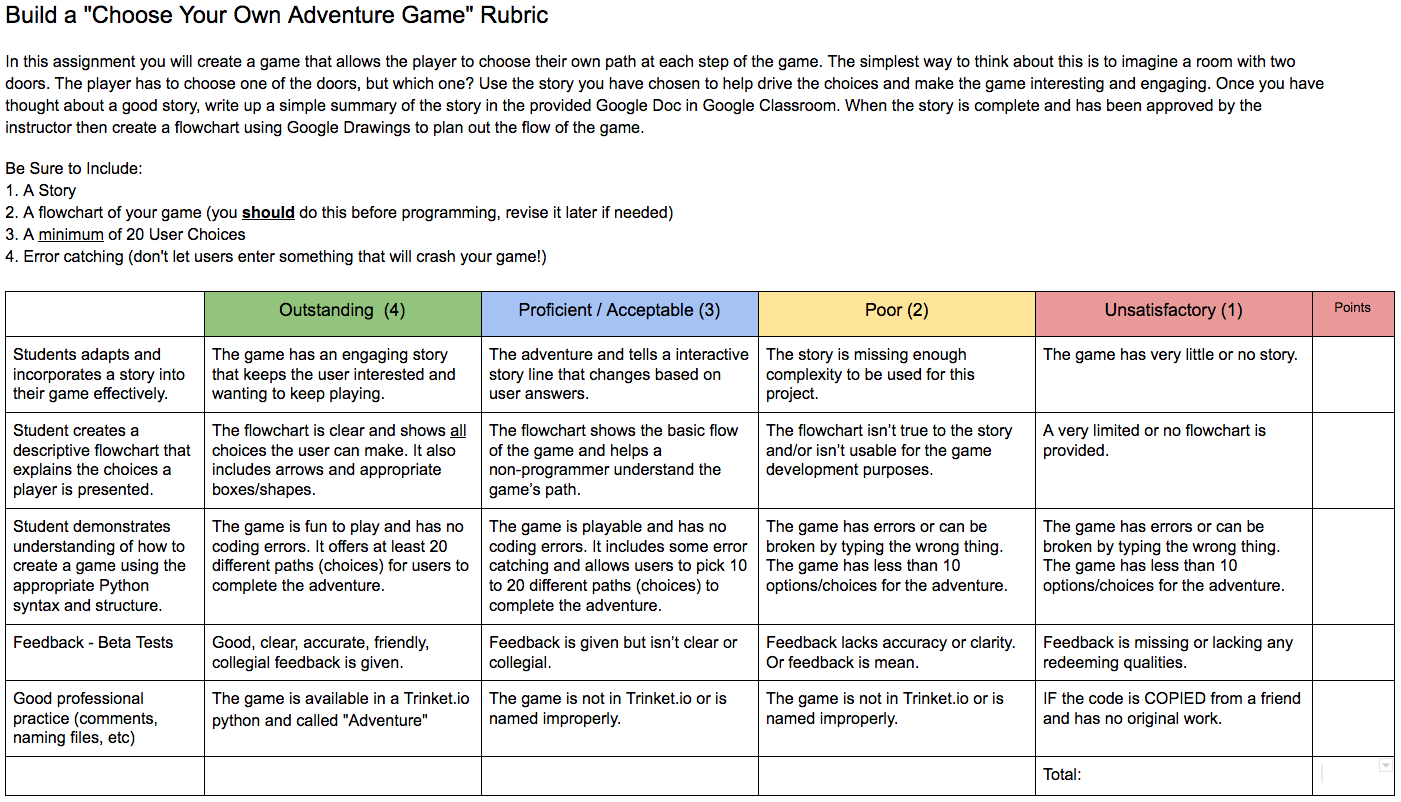The assessment plan for the Python “Choose Your Own Adventure” text based game micro-course involves formative and summative assessment. Because of the nature of coding and the need to constantly revise the students have been asked to clearly label each version of their work.
Learning Objectives
- Students incorporate and adapt a story into their game effectively.
- Students develop a descriptive flowchart that planning.
- Students demonstrates understanding of how to create a game using the appropriate Python syntax and structure.
- Students practice good “professional practice” in their coding (comments, naming files, etc) and beta testing (offering only clear constructive feedback).
Formative Assessments
The first formative assessment involves the students sharing their working flowchart during the planning stage of the project. This is shared via a Google Drawing and can be checked by the instructor throughout the process.
While students work in the Open EdX and watch the instructional videos, EdPuzzle is used to help keep students on task and make them aware of important information that will be needed later in their project.
Additionally the simple built-in questioning tools in Open EdX have also been used to help add another formative assessment.
Then students will play (beta test) each of the peers games and give feedback based on the rubric seen below, via a Google Form. Students are instructed to “be professional” and to be very clear about where improvements need to be made. If there is a typo, flaw in the game’s story or a coding error, students are asked to pinpoint the issue and document it so the student can address the “bug” later.
Summative Assessment
The summative assessment is based on the rubric show below. Learners have already seen and used this rubric in part of their peer assessments (beta testing) and now have had time to revise their work and resubmit a more polished version 2.0 for final grading.
